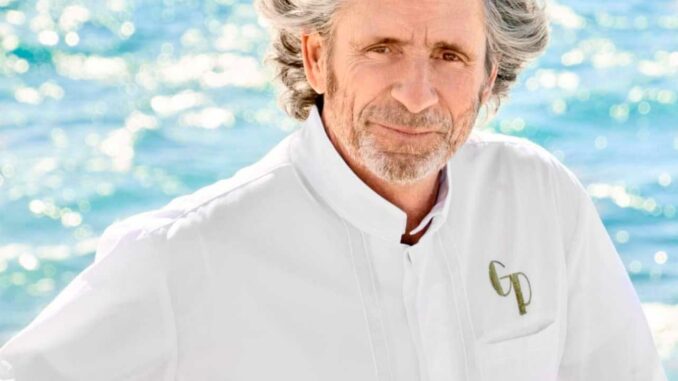
Discover the journey of Gérald Passedat, Marseille’s three-star chef, whose cuisine blends French gastronomy, Mediterranean flavors, and marine biodiversity.
Among the great names of French gastronomy, Gérald Passedat stands as one of the most distinctive. Born in Marseille in 1960, he has built his career on a singular connection with the Mediterranean, turning the sea into both pantry and muse. At the helm of Le Petit Nice, his family restaurant since 1917, he has held three Michelin stars since 2008, a rare achievement in French cuisine. His cooking highlights forgotten fish, pristine flavors, and the lightness of Provence. This portrait retraces his path, his influences, his signature dishes, and his lasting role in shaping contemporary French food culture.
From Marseille roots to Michelin recognition
Gérald Passedat grew up in Marseille within the walls of Le Petit Nice, founded by his grandfather in 1917. His father, Jean-Paul, combined a past as an opera singer with his career as a chef, earning two Michelin stars in the 1980s. Immersed in this environment, the young Gérald observed the rhythm of the kitchen and absorbed the values of rigor and excellence.
At age twelve, a formative meal at Alain Chapel’s three-star restaurant near Lyon revealed to him that food could be an art form and a source of deep emotion. After studying at the École Hôtelière de Lausanne, he undertook demanding apprenticeships. At Le Coq Hardi in Bougival and the Bristol in Paris, he strengthened his classical base. Time with the Troisgros brothers in Roanne taught him precision and balance, while Michel Guérard in Eugénie-les-Bains introduced him to the lightness of nouvelle cuisine.
Returning to Marseille in 1984, he joined his father in the kitchen. By 1987, he had assumed leadership, bringing new energy while honoring tradition. In 2008, his vision was recognized with the third Michelin star, confirming Le Petit Nice as a landmark in French cuisine and making Passedat one of the few chefs to carry Marseille into the global culinary spotlight.
Influences anchored in the Mediterranean
For Gérald Passedat, the Mediterranean is more than geography—it is a philosophy. An avid diver, he draws inspiration from the biodiversity of the sea, championing lesser-known fish such as girelle, denti, and chapon. His collaboration with local fishermen ensures sustainable practices like line fishing and seasonal respect, reinforcing a responsible approach to gastronomy.
His style is characterized by minimalism: short cooking times, restrained seasoning, and an unshakable respect for the raw product. The vegetables, herbs, and olive oils of Provence provide balance to the marine focus, anchoring his work in regional specialties. The discipline of the Troisgros brothers and the purity championed by Michel Guérard remain visible, as does the emotional resonance he first felt with Alain Chapel.
This synthesis defines his place within French cooking today: firmly rooted in terroir yet open to contemporary ecological imperatives. By elevating forgotten species and highlighting clean, precise flavors, Passedat demonstrates how French gastronomy adapts while preserving authenticity.
Le Petit Nice: a Marseille institution
Located on the rocky Anse de Maldormé, Le Petit Nice is both a hotel and a restaurant, facing the Mediterranean and offering an unrivalled panorama of the Frioul Islands and the Château d’If. Its 17 rooms, redesigned in 2016 in white and blue tones, echo the sea, while the dining room remains intentionally understated to highlight the view and the food.
The restaurant limits service to about 30 covers, emphasizing intimacy. Menus evolve with the seasons and arrivals, often showcasing 60 different fish species over the year. The “Menu Méditerranée,” around 380 euros in 2024, illustrates his philosophy with creations like the bouillabaisse by stages or the “loup Lucie Passedat,” a tribute to his grandmother. The wine cellar, with over 800 labels, highlights Provence while embracing global references.
This establishment is not only the bearer of three Michelin stars since 2008, but also a symbol of continuity, maintained by three generations of the Passedat family. In 2024, Passedat sold a minority share to CMA CGM, ensuring financial stability while retaining creative control.
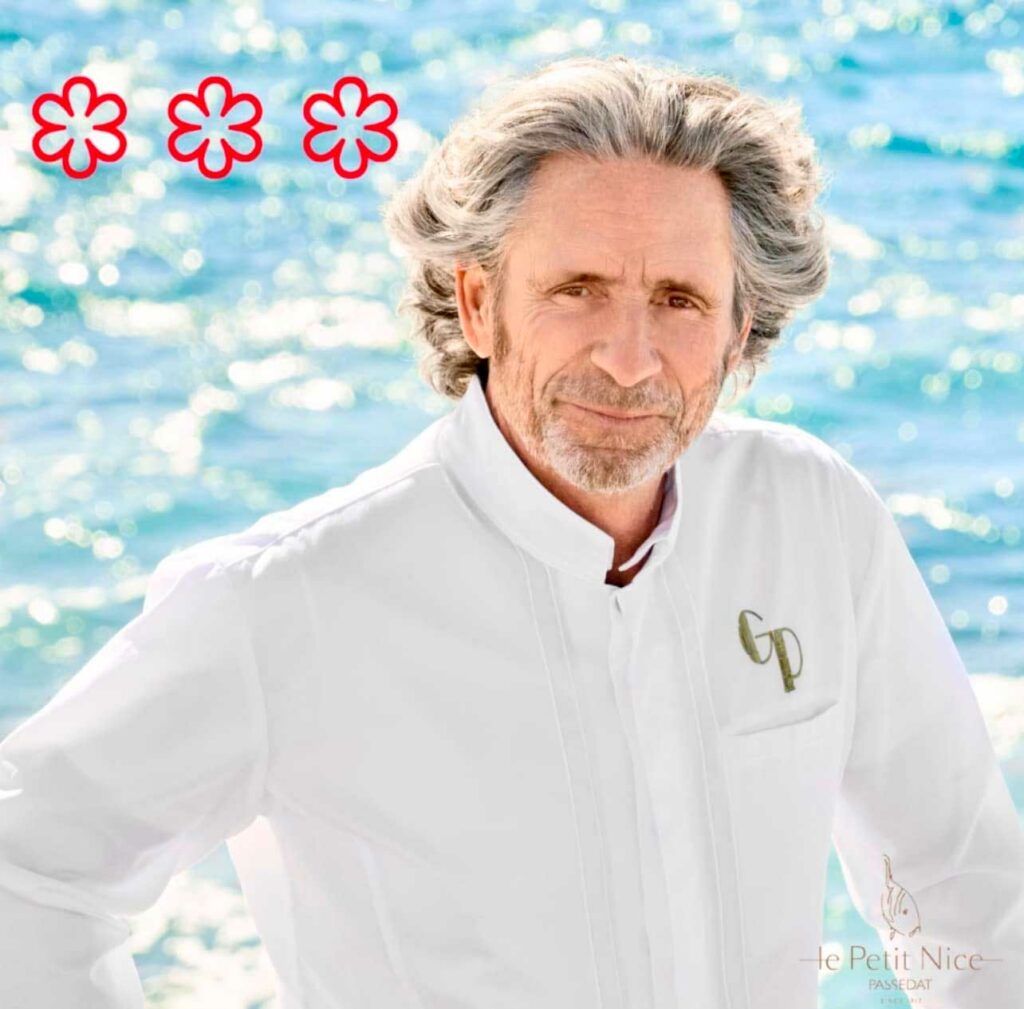
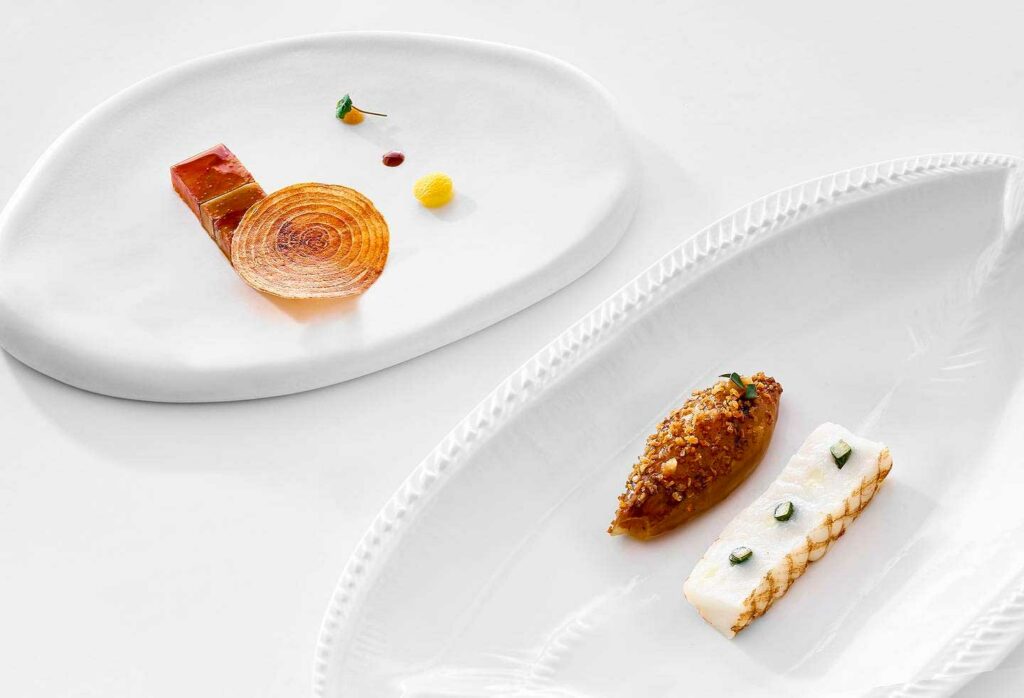
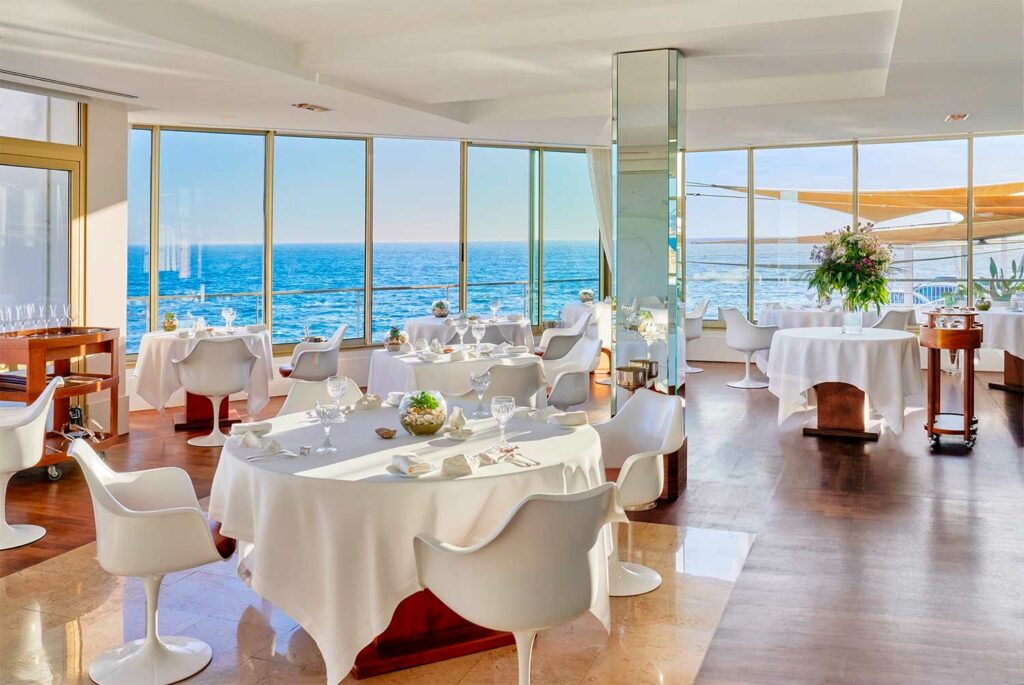
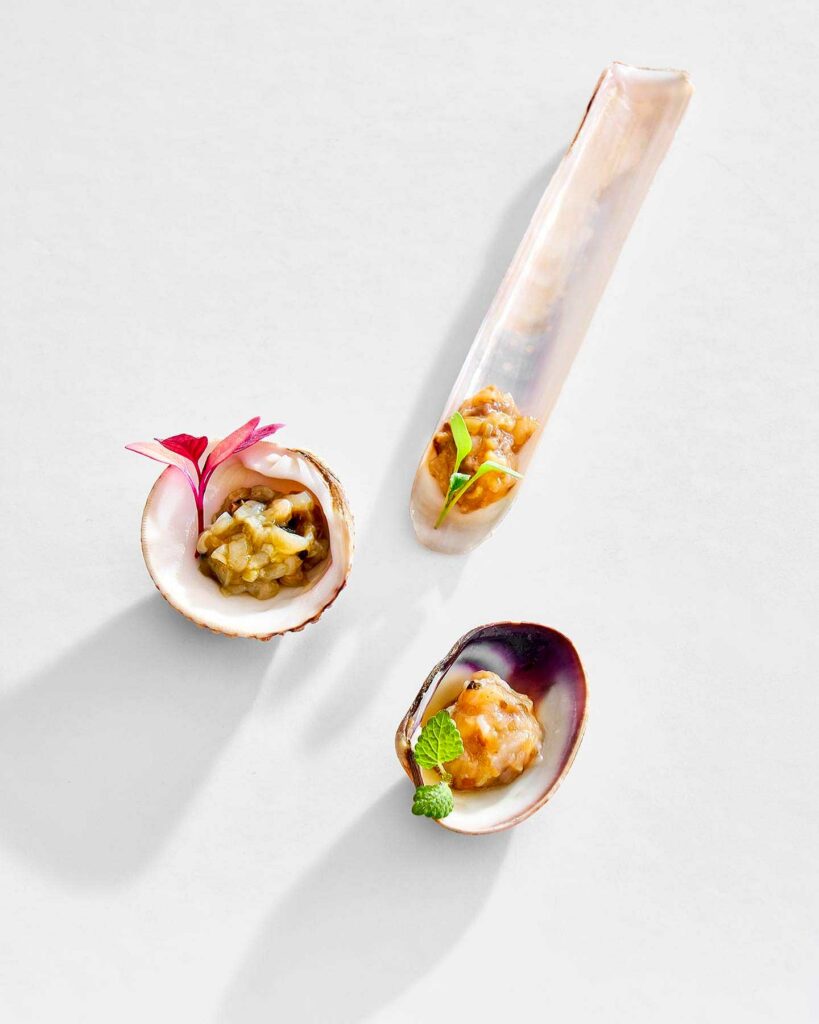
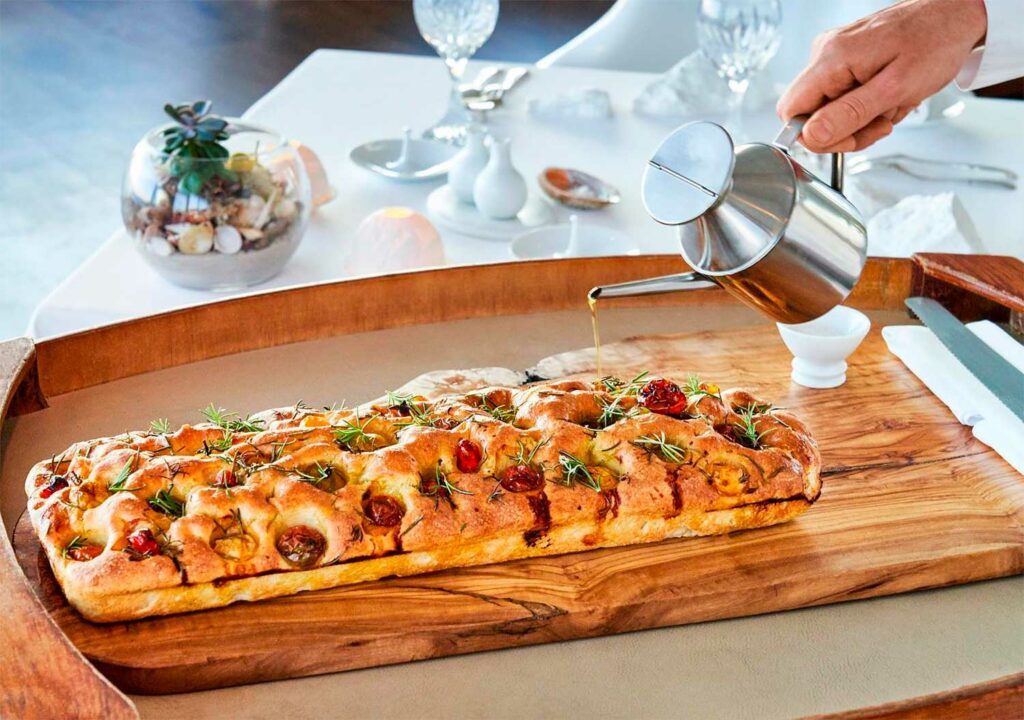
Signature dishes
The identity of Gérald Passedat crystallizes in his signature dishes, each combining Mediterranean ingredients with technical finesse.
- Loup Lucie Passedat: a sea bass roasted in a salt crust, paired with a citrus sauce, named after his grandmother and evoking his family heritage.
- Bouillabaisse par paliers: a reinterpretation of the classic Marseillais dish, created in 1987, where each fish is cooked separately, allowing distinct textures and concentrated flavors.
- Denti fumé en caravane blanche: a smoked fish dish with cauliflower and caviar, marrying rustic elements with refined luxury.
- Poissons du sud: an exploration of raw, marinated, or smoked preparations of lesser-known local species, emphasizing marine biodiversity.
These plates reflect his credo: simplicity, precision, and enhancement of the Mediterranean. They represent not only French gastronomy, but also the specificity of Marseille’s culinary identity within French food culture.
Achievements and wider influence
Beyond his Michelin recognition, Gérald Passedat has multiplied his influence. In 2011, he co-founded the Collège Culinaire de France with Alain Ducasse and other leading chefs, reinforcing the values of French gastronomy. The following year, he launched Gourméditerranée, an association dedicated to promoting Mediterranean cuisine and supporting local producers.
His book Des abysses à la lumière (2013) received the award for best gastronomy book, combining marine photography with recipes. He expanded his presence with Le Môle Passedat at the Mucem in Marseille, including a gastronomic table, a brasserie, and a café, thereby making high-quality cuisine accessible to a wider public. Further projects included Albertine at the Docks de Marseille (2016) and the Brasserie Lutetia in Paris (2019).
Despite health challenges, including a double liver transplant in 2018, Passedat has continued to cook, teach, and inspire. His dedication earned him the Médaille du Mérite in 2024.
Legacy and transmission
For Gérald Passedat, legacy is as important as recognition. His cooking school at the Mucem introduces both amateurs and professionals to Mediterranean flavors, embodying the didactic role of cooking classes in France. His writings, including Ma Méditerranée (2015), share recipes adapted for home cooks, broadening access to his philosophy.
Sustainability remains central: by working closely with fishermen, he promotes responsible practices that protect marine ecosystems. His association Gourméditerranée fosters dialogue between chefs, producers, and institutions, ensuring that Mediterranean cuisine remains both vibrant and responsible.
Culturally, Passedat weaves music and art into his universe, influenced by his family’s operatic past. This holistic vision extends gastronomy beyond the plate, situating it within the broader framework of French food culture.
Through three generations, Le Petit Nice has become more than a restaurant: it is a symbol of Marseille’s contribution to French cuisine, perpetuated by a chef whose voice resonates far beyond his city.
Gérald Passedat embodies the dialogue between tradition and innovation. Anchored in Marseille yet open to global influences, his work illustrates how French gastronomy evolves without losing sight of its terroir. His respect for the Mediterranean, his emphasis on biodiversity, and his willingness to share knowledge through books, associations, and cooking classes in France ensure that his influence extends well beyond Michelin stars. He stands not only as a guardian of Marseille’s culinary identity but as a contributor to the future of French cooking at large.
Cook in France is your independant source for food in France.